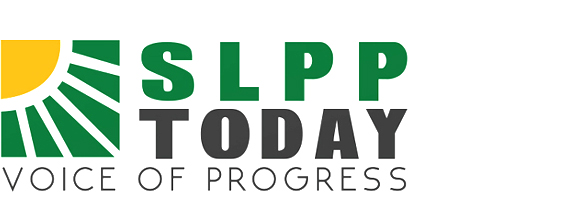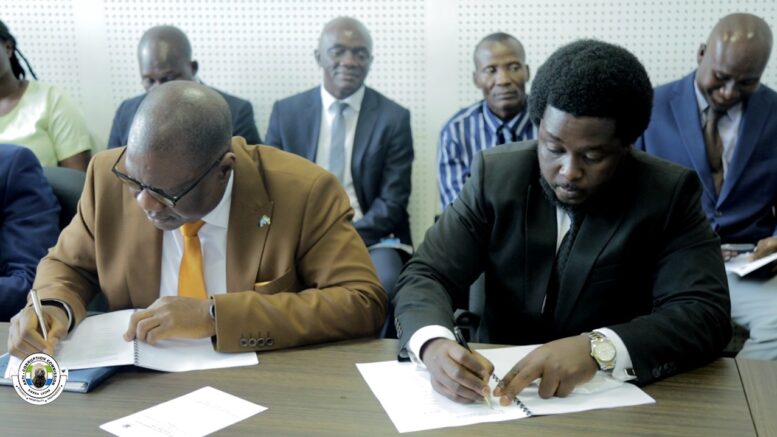The Tribunal Report on Auditor-General Exposes Grave Misconduct
The recent Tribunal report on the Auditor-General, Mrs. Lara Taylor-Pearce, and her Deputy, Mr. Tamba Momoh, has revealed serious misconduct within Sierra Leone’s Audit Service. The findings reveal a disturbing pattern of unethical behavior, conflict of interest, and abuse of power. This article examines the key issues uncovered by the Tribunal and calls for urgent government action to restore trust in the country’s auditing processes.
Double Standards in Auditing
The Tribunal report highlights the Auditor-General’s selective approach to auditing. Mrs. Taylor-Pearce aggressively audited the President’s office, even breaching confidentiality by scrutinizing personal medical and security details. However, she actively blocked the audit of the Freetown City Council’s Transform Freetown projects. Mayor Yvonne Aki-Sawyer led these projects, flagged for missing records, yet the Auditor-General and her Deputy refused to authorize a detailed audit.
This double standard in service is troubling. While the President’s office faced intense scrutiny, the Mayor’s office received undue protection. The Tribunal report documents this selective auditing in paragraphs 145-161, noting that the Auditor-General refused to sign a letter requesting further investigation into the Transform Freetown projects. The report states that this refusal went unchallenged and unverified. Such actions suggest a clear bias and raise serious questions about the integrity of the Audit Service Sierra Leone (ASSL).
Manipulation of Audit Reports
The Tribunal also uncovered evidence of improper conduct in handling audit reports. Mrs. Taylor-Pearce and Mr. Momoh altered the final draft audits without consulting the auditors or the auditee. This manipulation aimed to present the President’s office in a negative light, even when the original findings did not support such conclusions.
Paragraphs 225-227 of the report detail how these changes occurred and highlight the unethical behavior of the Auditor-General and her Deputy. This conduct not only violates professional standards but also undermines the credibility of the audit process. The report emphasizes that these alterations were deliberate, reflecting a gross misuse of power within the ASSL.
Conflict of Interest and Poor Leadership
The Tribunal report also illuminates a significant conflict of interest involving Mr. Tamba Momoh. While serving as the Deputy Auditor-General, Mr. Momoh operated a private firm that provided audit services to other public institutions. This conflict of interest, documented in paragraphs 121-128 and 207-209, raises serious concerns about the leadership within the ASSL.
Mrs. Taylor-Pearce allowed Mr. Momoh’s side business to continue unchecked, demonstrating a lack of oversight and poor leadership. The report criticizes this failure, noting that such behavior is unacceptable in any public office. The Deputy Auditor-General’s dual roles compromised the integrity of the audits conducted by the ASSL and brought into question the agency’s ability to hold others accountable.
Government’s Duty to Act
Given the severity of the Tribunal’s findings, the government must take immediate action to address these issues. The report includes several recommendations that, if implemented, could restore public trust in the Audit Service.
One key recommendation is that Mr. Momoh be removed from his position within the ASSL. Although Mr. Momoh submitted a resignation letter during the Tribunal proceedings, the report suggests that it should not be accepted. Allowing him to resign would enable him to evade responsibility for his actions. The government must ensure that the Audit Service Board fulfills its mandate to hold public officials accountable.
Another crucial recommendation is that the Anti-Corruption Commission (ACC) investigate Mrs. Taylor-Pearce and Mr. Momoh for their handling of the 2020 audit, particularly concerning the Office of the President and the Freetown City Council. The Tribunal’s findings indicate potential corruption within the Transform Freetown project, which has been linked to the repayment of funds by the Freetown City Council. This investigation is necessary to ensure that those responsible for misconduct are accountable.
The Tribunal also recommends reviewing Section 137 of the Constitution to provide an effective mechanism for monitoring and disciplining the Auditor-General. The current system lacks the necessary checks and balances, allowing individuals in powerful positions to act without accountability. Strengthening this oversight mechanism is essential to prevent future abuses and to protect the integrity of Sierra Leone’s audit processes.
Importance of Transparency and Accountability
The Tribunal’s findings underscore the importance of transparency and accountability in public institutions. The Auditor-General’s office, tasked with safeguarding public funds, must operate with the highest standards of integrity. When the leaders of such institutions engage in unethical behavior and abuse their power, it erodes public trust and undermines the very foundation of democracy.
The government’s role in addressing these issues is critical. By implementing the Tribunal’s recommendations and taking decisive action against those responsible, the government can demonstrate its commitment to upholding the rule of law and protecting the public interest. This is about punishing wrongdoing and ensuring that Sierra Leone’s institutions operate transparently and fairly.
Public Reaction and the Way Forward
The public reaction to the Tribunal report has been one of concern and disappointment. Many Sierra Leoneans have followed the proceedings closely, and the report’s findings have sparked widespread debate. The silence from key professional bodies, such as the Institute of Chartered Accountants and the Sierra Leone Bar Association, has been notable. These organizations are expected to speak out on matters of public interest, particularly when such serious allegations are involved.
In a recent statement, the Chief Minister emphasized the need for all citizens to remain engaged in governance issues. He called on the public to demand more accountability, justice, and adherence to the rule of law. The Tribunal’s open and transparent process is a model for conducting public investigations. It is now up to the government to act on the findings and ensure those who have violated their duties are held accountable.
The Role of the Media and Civil Society
The media and civil society organizations also play a crucial role in holding public officials accountable. By reporting on the tribunal’s findings and advocating for justice, they can help ensure that the government takes the necessary actions. The media’s role in providing accurate and timely information to the public is vital in maintaining transparency and promoting accountability.
Civil society organizations must also continue to monitor the situation and push for reforms that will strengthen Sierra Leone’s institutions. By working together, the media and civil society can help build a more just and equitable society where we hold public officials to the highest standards of integrity.
Conclusion
The Tribunal report on the Auditor-General, Mrs. Lara Taylor-Pearce, and her Deputy, Mr. Tamba Momoh, reveals a troubling pattern of misconduct, conflict of interest, and abuse of power within Sierra Leone’s Audit Service. These findings demand urgent government action to restore public trust and ensure that those responsible are held accountable.
The government must implement the Tribunal’s recommendations, including removing Mr. Momoh from his position, investigating the conduct of the Auditor-General and her Deputy, and reviewing the constitutional provisions for monitoring the Auditor-General. The government can demonstrate its commitment to transparency, accountability, and the rule of law by taking these steps.
The public, media, and civil society must also play their part in demanding justice and ensuring that Sierra Leone’s institutions operate with the highest standards of integrity. Together, we can build a stronger, more accountable Sierra Leone, where we hold public officials to account and restore the public’s trust in its institutions.





